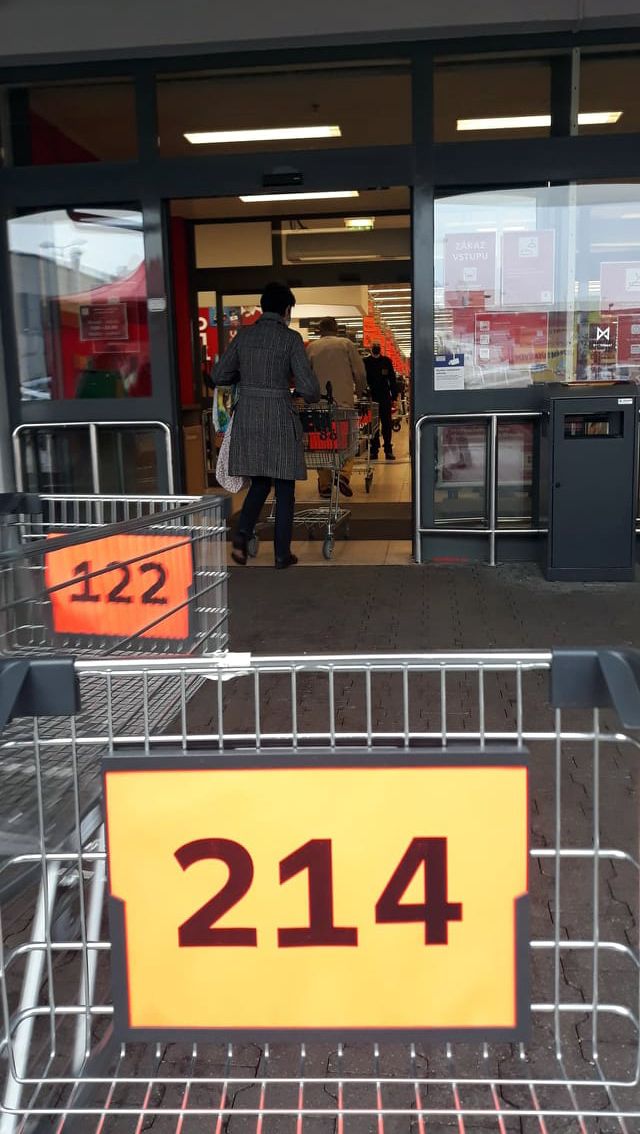From Monday, it is possible to have the shops open until 11 pm, of the large chains, only Tesco will use it. Neither Penny Market nor Globus are considering an extension of operating hours yet. In stores, the area limit of 15 square meters per customer still applies. Queues are not formed according to chains, but they manage the situation only at the cost of increased labor costs – they had to call in reinforcements for cash registers and counters.
Penny Market has shifted operations at stores that closed before the cut at this time. According to the company’s spokesman Tomáš Kubík, this usually applies to shops in larger cities, in smaller shops they close at 20:00, he said. According to him, the chain does not currently plan to further adjust the operating hours.
Globus hypermarkets are also open again until 21:00 from Wednesday. “Currently, we do not consider that we will extend the opening hours quickly, especially with regard to our employees, who went through such a difficult period this week associated with customer regulation and other changes. We do not rule out a possible extension in the exposed December period or frequency of the following days, “said company spokeswoman Lutfia Wolf.
Tesco, for example, will use the possibility to be open until 23:00, especially in stores that operated until midnight or non-stop before the restrictions. Albert will extend the operation of his hypermarkets until 22:00. As before, the Kaufland stores will be open until 22:00.
The bill is likely to restore standard business hours for stores that previously operated longer than 9 p.m. The company will still discuss a possible extension until 23:00, said its spokeswoman Dana Bratánková.
Queues are not created at the cost of increased costs
Apart from the longer opening hours, the rules do not change, the stores still have a limit of 15 square meters per customer. Queues are not created according to string representatives. However, the traders managed the situation at the cost of increased wage costs and the full deployment of the workforce, said Albert Jiří Mareček, Director of Stores Albert.
According to Mareček, the fronts were prevented from increasing the number of cashiers and workers at the counters with delicacies. They also had to hire coordinators in front of the stores. “So far, we have managed the situation very well at the cost of increased wage costs by high units of millions of crowns in these few days,” said Mareček.
The sellers were afraid of forming queues and that they would not be able to serve some of the customers. The president of the Confederation of Trade and Tourism of the Czech Republic, Tomáš Prouza, estimated that 20 to 30 percent of people would not have to enter shops.
Some chains have decided to regulate the number of customers using counted carts. Therefore, for example, everyone in Kaufland, Billa or Penny stores must have a wheelchair when entering the store. Security staff can thus better monitor compliance with the measures. Tesco or Globus monitors capacity using electronic counters in tablets or cameras at the entrances. These chains inform about the occupancy of stores on the screens.
On Friday, the government approved a change in the anti-epidemic system (PES) from the highest, fifth alert to the fourth, which came into force on Monday. The curfew period has been moved from 21:00 to 23:00, as long as shops with basic necessities, such as groceries, pharmacies, drugstores and opticians, can also be open.
In chains where wheelchair access is required, an exception applies from Monday, for example, for mothers with prams and children under the age of six. Retail is allowed from Monday to Saturday, shops must remain closed on Sundays. It is also possible to operate dispensaries.
– .


:quality(80)/cdn-kiosk-api.telegraaf.nl/ef9351f4-2db2-11eb-bd3b-02c309bc01c1.jpg)